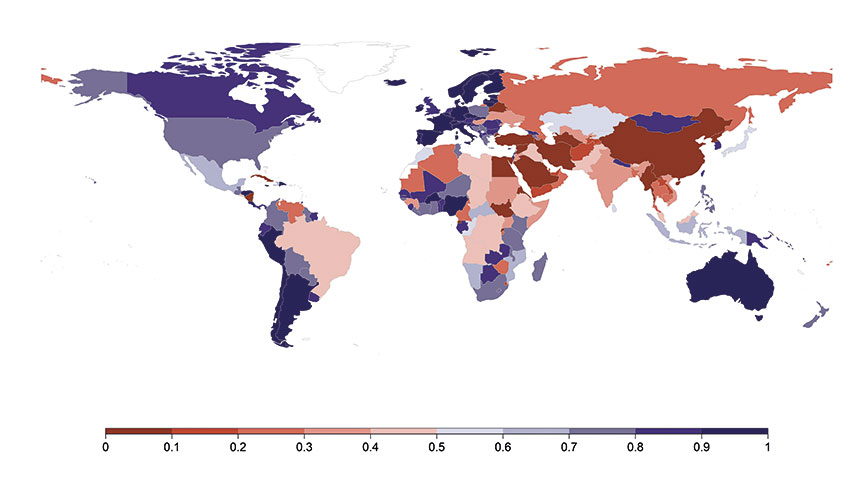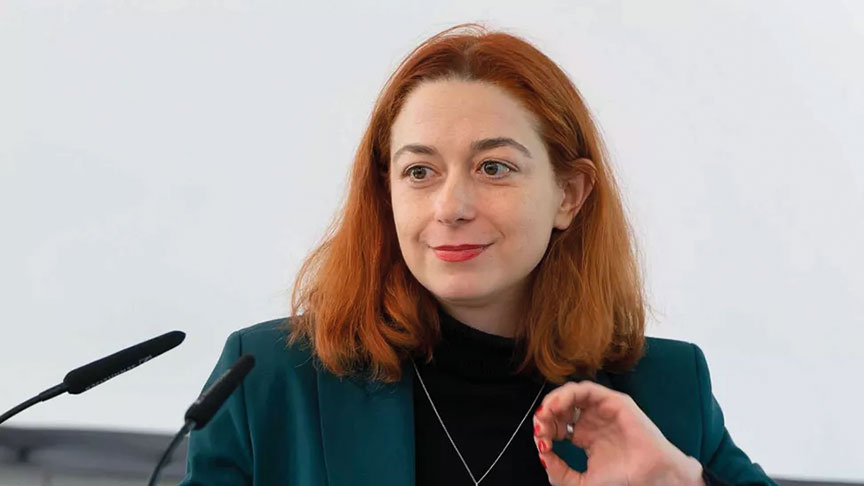Text: Johannes Göbel
Paths to freedom
Academic freedom is under pressure around the world. What can academic exchange achieve?
The Arabic word “ta’ziz” can be translated as “strengthening”. It is the name of a new DAAD programme that promotes academic cooperation between German universities and partners in the MENA region. It strengthens not only teaching, research and university management, but also values such as democracy and the rule of law: the Ta’ziz Partnership programme aims to facilitate the participation of civil society in general and women in particular, and to foster diversity in the partner countries – focusing especially on Tunisia, Iraq, Lebanon and Sudan. The funding, provided by Germany’s Federal Foreign Office, is targeted above all at projects that support reforms at higher education institutions in the partner countries. The Ta’ziz Partnership encompasses three programme lines, relating to short-term measures, scientific and academic cooperation, and networks. As the DAAD explained at the programme’s launch in early 2023, the three lines are linked by “their long-term objective of lastingly strengthening academic freedom”.
This example of the DAAD’s funding activities illustrates how academic freedom is related to many different factors. In its position paper on foreign science policy, published in 2022, the DAAD makes it clear that it is simply not the case “that values such as freedom of science and scientific integrity are conveyed ‘by themselves’ via academic exchange – for example, based on the assumption that science only functions if it feels committed to these values”.
The DAAD relies on a wide range of formats in its efforts to strengthen academic freedom. These range from funding programmes such as the Higher Education Dialogue with the Muslim World, which supports not only cooperative projects but also issues like gender equality, to thematic events. In 2023, for example, the DAAD is continuing the virtual series “Dual use in international academic collaborations” run by KIWi, its Competence Centre for International Academic Collaborations. During the series, questions relating to the autonomy of universities are discussed, as is the ethical responsibility that higher education institutions have when cooperating with partner countries that are controversial from a security perspective.
“Ultimately it is governments and universities that are responsible for protecting academic freedom.”
Professor Katrin Kinzelbach, project manager at Friedrich-Alexander-Universität (FAU) Erlangen-Nürnberg
In late 2022, the DAAD also presented the Fundamental Academic Values Award for the first time, a prize funded by Germany’s Federal Ministry of Education and Research to honour research on academic freedom. In their work, the award’s first laureates – Janika Spannagel (Freie Universität Berlin), Dr Elizaveta Potapova (Public Policy and Management Institute, Lithuania) and Dr Milica Popović (Central European University, Austria and Hungary) – explore issues such as the measurability of academic freedom, the limits to freedom of expression, and economic constraints.

© FAU Erlangen-Nürnberg and University of Gothenburg, data from 2022
Apropos measurability: published each year by Friedrich-Alexander-Universität (FAU) Erlangen-Nürnberg and the University of Gothenburg, the Academic Freedom Index assesses the degree of academic and academic freedom in a total of 180 countries and regions. Project Leader Professor Katrin Kinzelbach from FAU emphasises that exchange alone is not enough. She says that it is true that this gives university members “insights into the German academic system, where the freedom of research and teaching is very well protected,” and that individuals will certainly be inspired by this to initiate reform processes in their home countries. She adds, however, that “in my view it is illusory to believe that academic exchange automatically leads to more academic freedom”. Additional efforts are needed, she believes: “The DAAD can advise and support scholarship holders and host institutions, and has created a point of contact in the form of the Competence Centre for International Academic Collaborations. This is important, but ultimately it is governments and universities that are responsible for protecting academic freedom.” —


